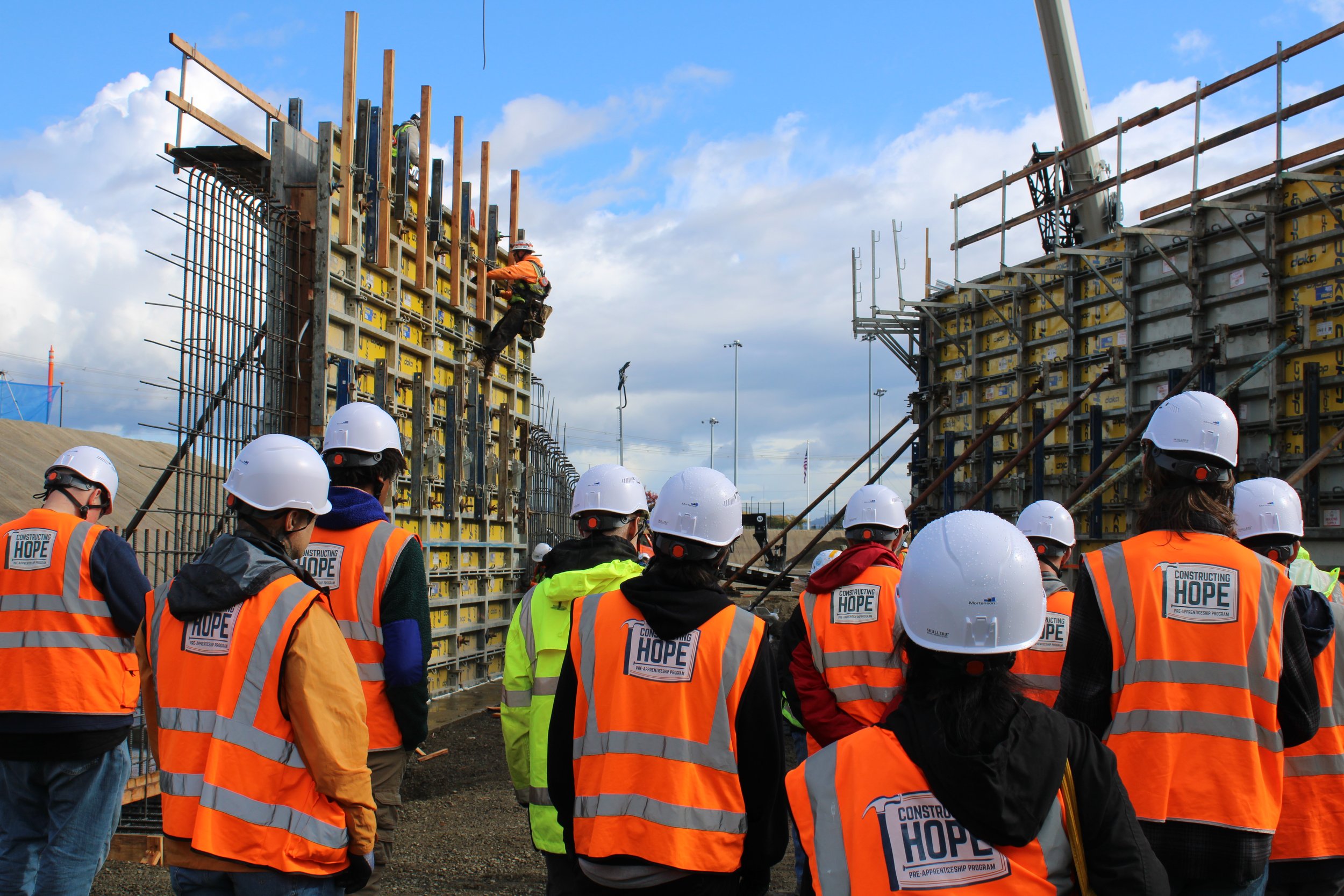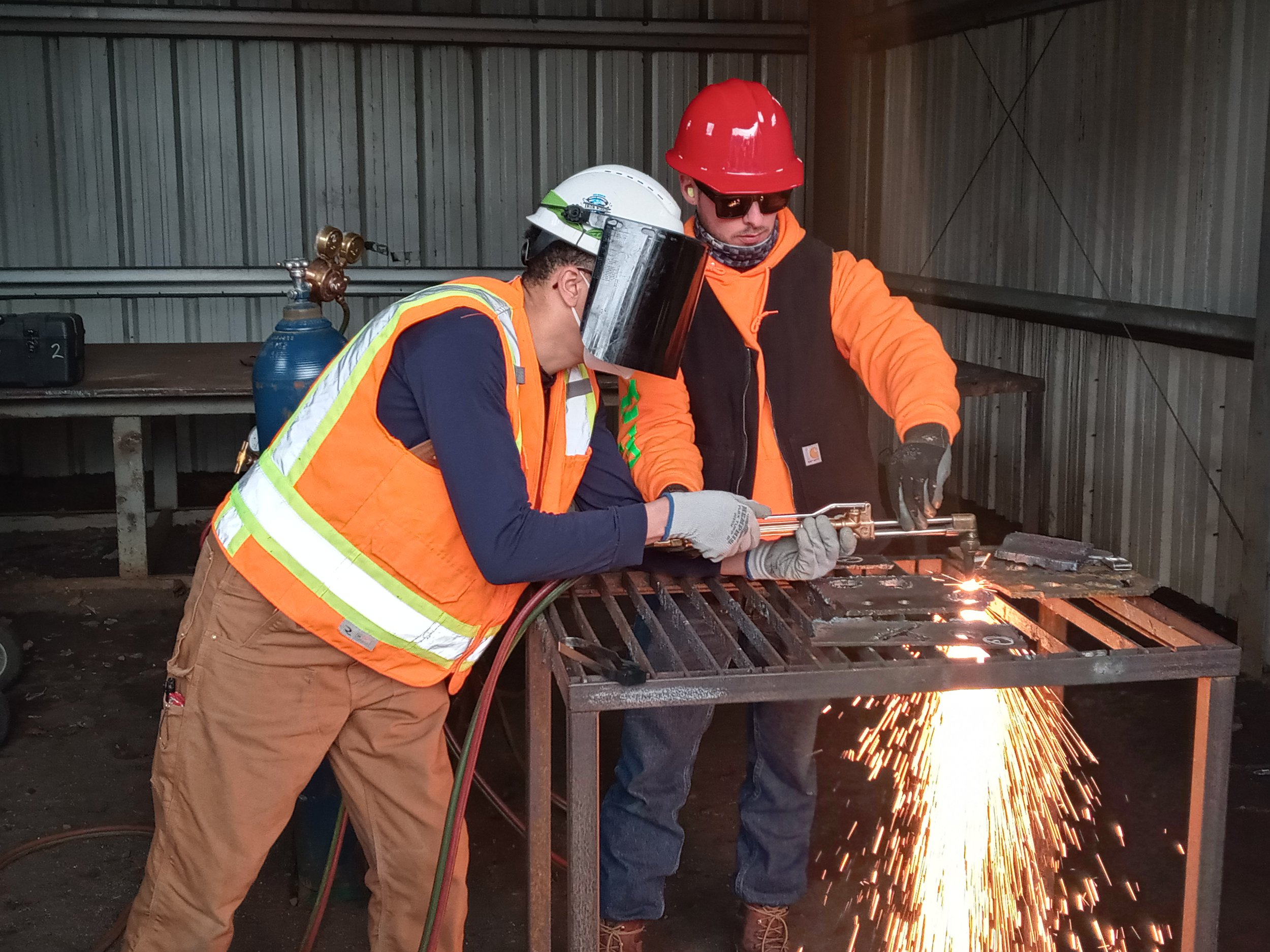Constructing Hope Connects People Who Have Been Incarcerated to Jobs in Construction
“There is no other program that compares to Constructing Hope. They are rooted in caring about construction and caring about people. Constructing Hope helps people in need, and they do it with an open heart. They give them opportunity. They give second chances, and they give third chances. Sometimes that’s what it takes.” - Treneil Washington, Constructing Hope program graduate
It’s no secret that it is tough for people who have been incarcerated to find jobs. Many employers discriminate against job applicants who have been convicted of a crime. However, construction is an exception. Construction workers are in demand, and construction jobs are more open to people with a history of involvement in the criminal legal system than other industries. Which is why Constructing Hope is eager and honored to serve justice-impacted individuals.
Constructing Hope grew out of Irvington Covenant Church members’ desire to meet the needs of the Black community in North and Northeast Portland. In the 1990s, community members faced rising rents and cost of living. So church members created a community development corporation (CDC), which started out by building housing. They found their groove in preparing people for careers in the trades, and in 2007, the CDC shifted solely to providing construction training.
Typically, people become construction workers through family connections to the industry. In Portland, where labor unions didn’t remove whites-only provisions in their by-laws until the 1960s, that means people of color have difficulty getting their foot in the door. That’s where Constructing Hope comes in.
Constructing Hope provides training, case management, job development and more, primarily for people who have been incarcerated, low-income folks and people of color. They provide a 10-week pre-apprenticeship training program every quarter. Participants get training and construction experience, access to social services, help writing a resume and practicing for job interviews, boots, tools, and more. Not only that, but Constructing Hope also commits to continuing support services for three years post-graduation.
The 10-week curriculum is co-developed with Constructing Hope’s BIPOC-led board and Constructing Hope graduates. Constructing Hope also calls in trainers, speakers, and mentors with similar experiences to the program participants. This gives participants a chance to see and hear how other people who have been in their shoes have succeeded through a career in construction.
Most participants complete the 10-week curriculum ready to take on an apprenticeship.
In five years, Constructing Hope placed 236 unemployed or underemployed community members in new careers with an average starting wage of $21/hour. Graduates entered careers as carpenters, cement masons, bricklayers, electricians, heavy equipment operators, HVAC technicians, insulators, sheet metal workers, roofers, iron workers, painters, elevator mechanics, plumbers and steamfitters. These jobs have allowed Constructing Hope graduates to become self-sufficient, to support themselves and their families.
With funding from the Justice Reinvestment Equity Program, Constructing Hope was able to hire a third case manager with a focus on re-entry services. This has increased Constructing Hope’s capacity, allowing them to also offer support with expungement of criminal records, fee and fine reduction, and driver’s license obtainment and reinstatement. In addition, Constructing Hope has been able to reach people still in prison, preparing them for their release.
We admire Constructing Hope’s deep and caring investment in their program participants. Thanks so much for the work you’re doing, and thank you for being a part of JREP!
Constructing Hope participants tell their own stories:
The Justice Reinvestment Equity Program (JREP) supports culturally specific organizations and culturally responsive services in communities most harmed and least helped by Oregon’s criminal legal system. JREP seeks to elevate organizations that have been overlooked by traditional funding streams with the goals of reducing incarceration and racial disparities in the criminal legal system, promoting healing and advancing community safety in Oregon. Learn more about JREP.



